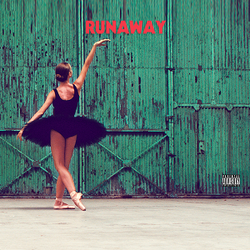 Ariana Grande’s “Thank U, Next” is more than a pop single—it’s a cultural reset, a self-empowered declaration that turned heartbreak into healing and pain into progress. Released in November 2018, the song arrived not as a typical breakup anthem or revenge ballad, but as something altogether new: a gracious farewell to past relationships wrapped in a breezy pop package. With its mix of vulnerability, gratitude, and unapologetic self-love, “Thank U, Next” not only redefined how breakup songs could sound, but also solidified Ariana Grande as one of pop’s most emotionally intelligent and culturally resonant artists of her era.
Ariana Grande’s “Thank U, Next” is more than a pop single—it’s a cultural reset, a self-empowered declaration that turned heartbreak into healing and pain into progress. Released in November 2018, the song arrived not as a typical breakup anthem or revenge ballad, but as something altogether new: a gracious farewell to past relationships wrapped in a breezy pop package. With its mix of vulnerability, gratitude, and unapologetic self-love, “Thank U, Next” not only redefined how breakup songs could sound, but also solidified Ariana Grande as one of pop’s most emotionally intelligent and culturally resonant artists of her era.
From the very first line—“Thought I’d end up with Sean, but he wasn’t a match”—Grande establishes a tone of radical honesty. She names names, something rarely done so directly in pop, and sets the stage for a song that is as autobiographical as it is universal. She lists her high-profile exes—Big Sean, Ricky Alvarez, Pete Davidson, and Mac Miller—not with bitterness or blame, but with appreciation. Each relationship, she implies, taught her something valuable. Rather than bury the past or vilify her exes, she chooses to embrace them as part of her journey. This approach instantly flipped the script on how pop stars typically handle public breakups, especially women. Grande refuses to play the victim or the vengeful ex. Instead, she takes control of her narrative, writing her own story with poise and maturity.
The phrase “Thank U, Next” itself became a cultural phenomenon almost overnight. It’s simultaneously polite and dismissive, casual yet profound. On its face, it’s a phrase you might toss off after finishing a drink or turning the page of a magazine. But in Grande’s hands, it becomes a mantra for emotional growth. It acknowledges the past, accepts its role in shaping the present, and signals readiness for the future. The song doesn’t wallow—it evolves. That attitude, that emotional forward momentum, struck a deep chord with listeners across the globe. In a time where social media often encourages drama and grudges, “Thank U, Next” offered a refreshing alternative: graceful closure.
Musically, the song is deceptively simple. Built around a mid-tempo trap beat with dreamy synths and smooth R&B-inspired vocals, the production is minimalist yet hypnotic. It allows Grande’s voice—and more importantly, her message—to take center stage. Her delivery is conversational, almost like a diary entry or a phone call to a friend. There’s a sense of intimacy that makes the listener feel close to her, as if she’s letting them in on something private. And yet, the song never feels heavy. It floats, it breathes, it glows with a kind of peaceful resolve. That balance—between emotional depth and sonic lightness—is what makes “Thank U, Next” so powerful.
The timing of the song’s release amplified its impact. It came just months after the tragic death of Mac Miller and the very public end of her whirlwind engagement to Pete Davidson. Grande had been through a gauntlet of grief, scrutiny, and personal upheaval, and the world had watched it unfold in real time. Many expected her next release to be melancholic, somber, or combative. Instead, she gave the world something gracious and hopeful. That decision was both courageous and groundbreaking. It redefined how artists could respond to heartbreak. Rather than retreat or lash out, Grande leaned into reflection and gratitude.
One of the song’s most poignant moments comes when she sings, “I’ve loved and I’ve lost, but that’s not what I see / ‘Cause look what I found: ain’t no need for searching.” This is the emotional heart of the track, where the song shifts from being about relationships with others to being about the relationship with herself. It’s a declaration of self-love, of contentment found within. That pivot gives the song its lasting resonance. Listeners weren’t just connecting to the breakup narrative—they were connecting to the realization that wholeness doesn’t come from others, but from within. “Thank U, Next” became a self-care anthem, an emotional survival guide, and a pop psychology slogan all in one.
The cultural explosion of the song was immediate. It debuted at number one on the Billboard Hot 100, making it Grande’s first chart-topping single in the United States. It broke streaming records on platforms like Spotify and Apple Music, and dominated radio waves for months. But its influence extended far beyond charts and metrics. “Thank U, Next” became a meme, a caption, a tweet, a tattoo. It was chanted at parties, written in notebooks, and quoted in therapy sessions. Its message—clear, concise, empowering—transcended the music industry and became part of the vernacular. People who had never heard an Ariana Grande album were suddenly quoting her lyrics to summarize their own emotional journeys.
The accompanying music video elevated the song to iconic status. Directed by Hannah Lux Davis, the video paid homage to early 2000s teen films like Mean Girls, Legally Blonde, Bring It On, and 13 Going on 30. It was a nostalgic fever dream, blending pop culture references with autobiographical Easter eggs and cameos from celebrities and close friends. By placing herself in these classic coming-of-age scenarios, Grande cleverly aligned her personal growth with the kinds of transformation stories that shaped a generation. The video was colorful, playful, and deeply self-aware, perfectly mirroring the tone of the song. It shattered YouTube records and became an instant classic, proving that Grande wasn’t just a pop star—she was a master of the visual narrative.
But the true genius of “Thank U, Next” lies in its emotional intelligence. In a music industry often obsessed with spectacle and drama, Grande delivered a moment of clarity. She chose maturity over melodrama, self-love over self-pity. She embraced the messiness of life without letting it define her. That emotional clarity is what gave the song its staying power. It wasn’t just a trend—it was a new standard. It showed how pop music could be personal and universal at the same time, how it could be fun without being shallow, and how it could transform pain into empowerment.
Grande’s vocal performance on the track deserves special attention. She doesn’t belt or riff excessively—she keeps it tight, controlled, and honest. That restraint allows the emotion to shine through. It’s a subtle but powerful choice. By underplaying the delivery, she amplifies the message. There’s a maturity in her tone that reflects the content of the song. She sounds like someone who’s been through fire and come out tempered, not broken. That strength, that calm in the eye of the storm, is part of what makes the song so affecting.
Beyond its individual success, “Thank U, Next” signaled a turning point in Grande’s career. It marked her transition from pop princess to pop philosopher. She was no longer just singing about love—she was dissecting it, learning from it, and sharing that wisdom with her audience. The song opened the door for her Thank U, Next album, which delved deeper into themes of heartbreak, self-worth, trauma, and healing. It allowed her to be more vulnerable and more fearless in her art. And it made clear that Ariana Grande wasn’t just surviving her experiences—she was transforming them into something transcendent.
There’s also a broader feminist undercurrent to “Thank U, Next” that shouldn’t be overlooked. In a culture that often expects women to define themselves through relationships, Grande flips the script. She acknowledges her past partners, gives them credit where it’s due, and then moves on—graciously, unapologetically, and on her own terms. That act alone is radical. She doesn’t erase her history—she integrates it. She owns her story without letting it own her. That balance of grace and assertiveness is what makes the song feel so modern, so vital, so necessary.
“Thank U, Next” became a benchmark for how to talk about breakups, loss, and self-worth in the 21st century. It’s not just a song about exes—it’s a song about evolution. It’s about looking back without bitterness, loving without regret, and moving forward with strength. It’s about the kind of maturity that comes not from age, but from experience, reflection, and resilience. And it’s delivered in a package that’s catchy, quotable, and irresistibly fun.
Years later, the song continues to resonate. Its chorus still echoes in gyms, bedrooms, and car rides. Its message continues to inspire people going through heartbreaks, transitions, and personal growth. It remains a reminder that endings can be beginnings, that pain can be a teacher, and that moving on doesn’t have to be sad—it can be empowering.
Ariana Grande’s “Thank U, Next” redefined what a breakup song could be. It challenged the tropes, reshaped the narrative, and gave voice to a new kind of emotional maturity. It blended vulnerability with power, gratitude with clarity, and personal pain with universal truth. It wasn’t just a hit song—it was a cultural moment. One that taught us all that sometimes, the best thing you can say after a storm is: “Thank you. Next.”


